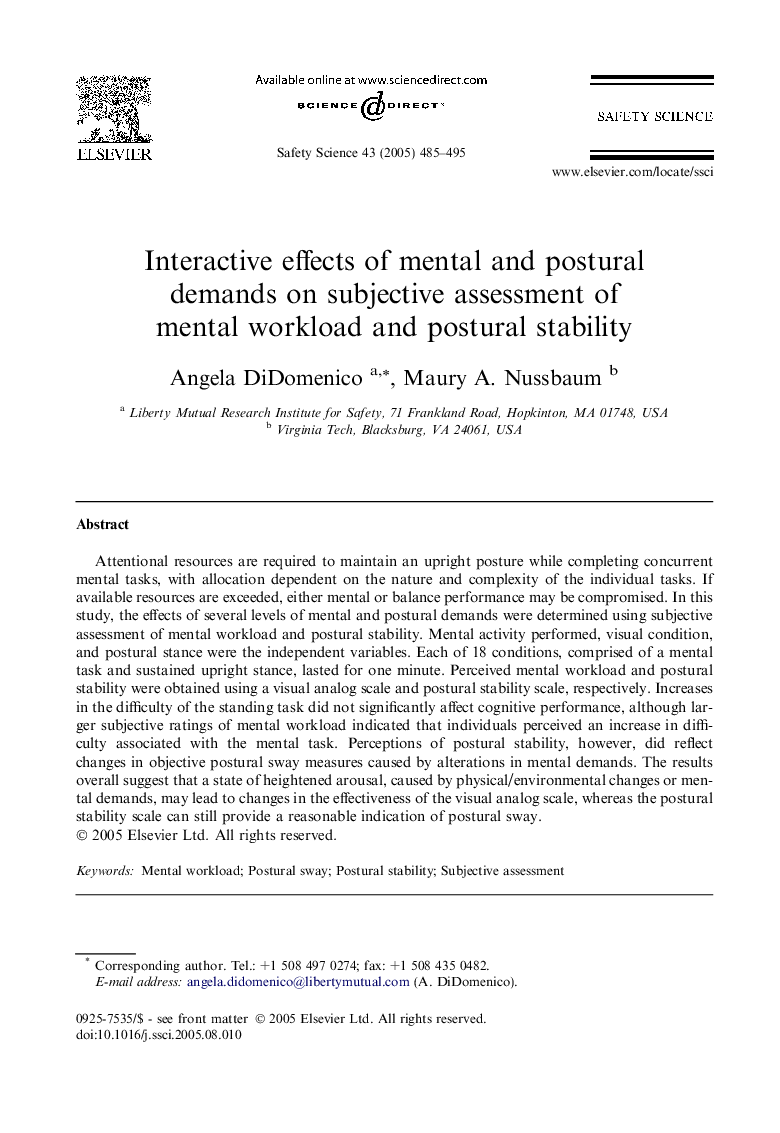| Article ID | Journal | Published Year | Pages | File Type |
|---|---|---|---|---|
| 10374367 | Safety Science | 2005 | 11 Pages |
Abstract
Attentional resources are required to maintain an upright posture while completing concurrent mental tasks, with allocation dependent on the nature and complexity of the individual tasks. If available resources are exceeded, either mental or balance performance may be compromised. In this study, the effects of several levels of mental and postural demands were determined using subjective assessment of mental workload and postural stability. Mental activity performed, visual condition, and postural stance were the independent variables. Each of 18 conditions, comprised of a mental task and sustained upright stance, lasted for one minute. Perceived mental workload and postural stability were obtained using a visual analog scale and postural stability scale, respectively. Increases in the difficulty of the standing task did not significantly affect cognitive performance, although larger subjective ratings of mental workload indicated that individuals perceived an increase in difficulty associated with the mental task. Perceptions of postural stability, however, did reflect changes in objective postural sway measures caused by alterations in mental demands. The results overall suggest that a state of heightened arousal, caused by physical/environmental changes or mental demands, may lead to changes in the effectiveness of the visual analog scale, whereas the postural stability scale can still provide a reasonable indication of postural sway.
Related Topics
Physical Sciences and Engineering
Chemical Engineering
Chemical Health and Safety
Authors
Angela DiDomenico, Maury A. Nussbaum,
